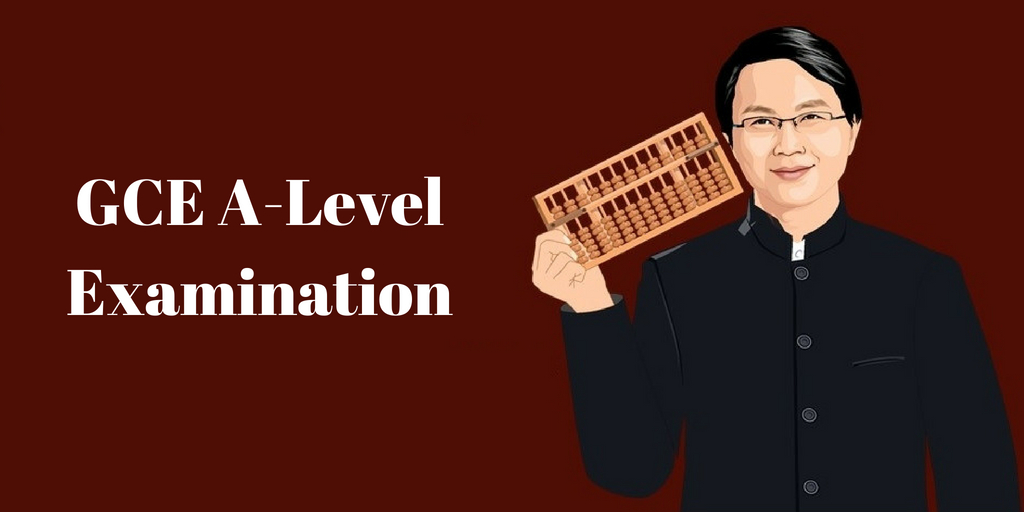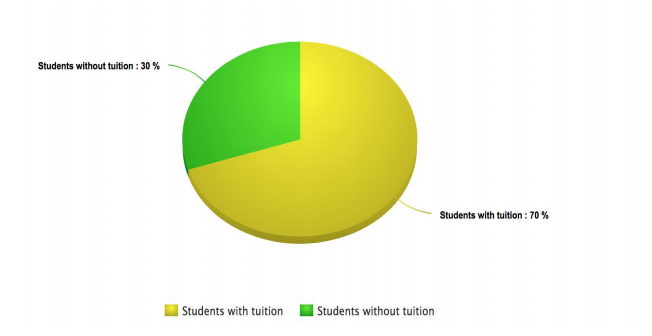
The GCE A-Level examinations is the final lap for all junior college students who have gone through a long and arduous 2-year journey. A lot of students who have graduated from secondary schools and are aspiring to venture into this pre-university phase often have many doubts in their mind as to what it entails.
FIRSTLY, the GCE A-Level Examinations act as a crucial step that determines your tertiary education and your career. To excel in this, students have to fearlessly clear their doubts and misunderstandings with their school teachers and A-Level home tutors. With regards to home tutors, it is in fact a common phenomenon, here in Singapore that many decide to supplement their school education with tuition; and statistics speak for itself. The pie chart below shows that even at the level of primary and secondary schools, majority of parents arrange tuitions for their children.

It is important for students to perform well in their GCE A-Level examinations so as to have a wide scope of options available when they have to choose their courses in university.

The kind of courses that students choose in University is then what shapes their career and hence it is essential to choose the right subjects (the H1s and H2s have to be strategically chosen) be it the Arts or the Science stream for the A-Levels. To achieve the desired results, students have to put in the effort and work with resilience.
SECONDLY, A-Level examinations test students’ ability to link concepts and apply the knowledge to solve real-world problems. This can be clearly seen though the kind of questions being set for the examinations. A-Level science stream students who sit through practicals would also be required to make use of their content knowledge, as well as laboratory skills to solve problems that they are presented with during the A-Level practical assessments. Compared to secondary schools’ subjects’ content, for the GCE A-Level subjects, content has much more depth. Students are expected to gauge what kind of concepts are linked together in the questions that are being asked and answer appropriately using the right key words.

If students realise that they struggle to fulfil this expectation, they should immediately seek help from their GCE A-Level home tutors or college subject tutors. Though this may seem difficult to master, students have to remember that this requires lots of time and effort.
THIRDLY, the GCE A-Level examinations test students’ endurance and ability to work under pressure. Most students, be it from the science stream or the arts stream, would realise that during examinations there are several factors that contribute to exam stress and the pressure felt during GCE A-Level examinations is much different from that of PSLE or O-Levels.

Given that during the GCE A-Level examination period papers would be lined up one after another. Sometimes students would have to complete two different papers for two different subjects on the same day and this means students have to recall the right content for the right subjects. Recalling every detail, constructing succinct answers and writing them down within limited time duration are several reasons that add up to the stress that candidates experience.
Time is the biggest enemy for any student during an examination. Candidates have to strategize and make use of the time effectively. This will prevent them from wasting their time unnecessarily on questions that they are unsure about how to answer. Planning is hence a skill that GCE A-Level tuition teachers and college subject tutors emphasise on so that candidates can eliminate unnecessary stress and perform effectively during examinations.
Tutors will prepare their students for the A-Level examination “battle” and students will eventually conquer their examination fearlessly.
